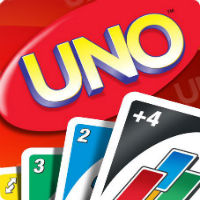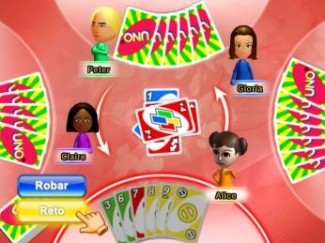Bastion
LQ: 9.15
Recommended Age: 10+
Skills Used: Planning, Working Memory, Mathematics, Reading

In this version of the classic card game, each player starts UNO with 7 cards that they must try to discard into the center pile. Players can discard cards that are either the same number or color as the top card in the center pile. The first player to discard all her cards wins. There are several special cards, like ones that reverse the turn order, skip other players, or cause the next player to draw cards rather than discard them. There are also “wild” cards, which can be discarded at anytime. UNO is a card game that features no inappropriate content, and is recommended for kids ages 5 and up.
Recalling and retaining information in our minds while working.
This game helps practice Working Memory skills, as there is various pieces of information to keep in mind while playing. Firstly, players need to try and remember which players have the least amount of cards left, as the goal is to stop them from discarding more and winning. Also, players need to remember the colors and numbers that caused other players to be skipped, as they can use this information when discarding to stall them from emptying the rest of their hand. Furthermore, players can use “skip” or “draw” cards on players who only have a few cards left, as this can keep them from using up their last cards.
Adapting and adjusting to changing conditions and expectations.
The flow of gameplay in UNO can change at any time. Players can play special cards that change the current color of the discard pile, force other players to draw extra cards or change the order of all players' turns. Flexible players learn to play these cards when they can help the most. For example, if the next player has UNO -- or only one card in his hand -- a Reverse or Draw X card can be played in order to keep the current hand alive and give other players a chance to catch up. Continuously using the same strategy is not a good idea in this game, as players have to adapt their tactics depending on whether or not the game is going in their favor.
Use this PlayTogether guide to learn how you can help your child turn UNO play time into a positive learning and relationship-building experience. To learn more about why playing games with your children is so important, check out our Science of Play page.
Talk a minute to talk to your child about how the Working Memory and Flexibility Thinking Skills work, and why they are important for success in school and at home.
UNO features single-player and an online multiplayer game modes, so the best option is to play together competitively. If that is not an option, you can always play the original card game with your child as well. Set some of the gameplay goals listed below, playing with your child to complete each one.
After you and your child have completed three full games in single-player mode, take some time to talk to your child about how UNO is improving your Working Memory and Flexibility skills.
Our Make It Work activities are designed to transform your child's gameplay into real-world improvements in thinking and academic skills. If you're just getting started with LearningWorks for Kids, we suggest you try them all to find which are best for your child.
Read over the pages for Working Memory and Flexibility, then take some time to introduce these Thinking Skills to your child.
Explain That:
Strategies used to help with reading comprehension can also help with working memory concerns. Help children to preview the steps needed to complete basic tasks such as getting ready for bed. Encourage them to predict what will happen if they miss a step. Then help them connect what they need to do with their previous knowledge of accomplishing these tasks. Ask them to paraphrase and summarize directions you have just given. Each of these techniques reflect some of the strategies that are often used with diverse learners to teach them how to use their previous memories and establish thinking skills to guide and direct their behaviors. If you are thinking about these strategies in regard to improving memory, you might also want to talk to your child’s classroom or resource teacher for more ideas about ways to try them.
Play games that change tempo. One example of this is the game of Hide and Seek where the players each get alternating chances to run around and be quietly still. Games such as this, that involve taking turns and shifting the order of turns when a player loses a turn or gains an extra turn, can help to build flexibility skills. These suggestions are particularly useful for children who have difficulty with transitions or who tend to have problems regulating their behavior.

Many kids with ASD crave structured environments, so a game like UNO -- which follows simple, explicit rules -- can serve as a good platform to get children with ASD interacting socially with others while practicing important skills like Flexibility and Self-Control. UNO gives children with ASD the opportunity to try out these skills in a fun game that's easy to learn, with bright colors and numbers that even younger children can learn. UNO is a game that's quick to pick up that can continue to provide your child with the practice needed for Flexibility within rule sets and structured environments, especially in scenarios where she's playing or working with peers.
How to Use UNO for Children with ASD:
All membership plans come with full access to our entire suite of tools learning guides, and resources. Here are a few of the ones we think you’ll like the most: